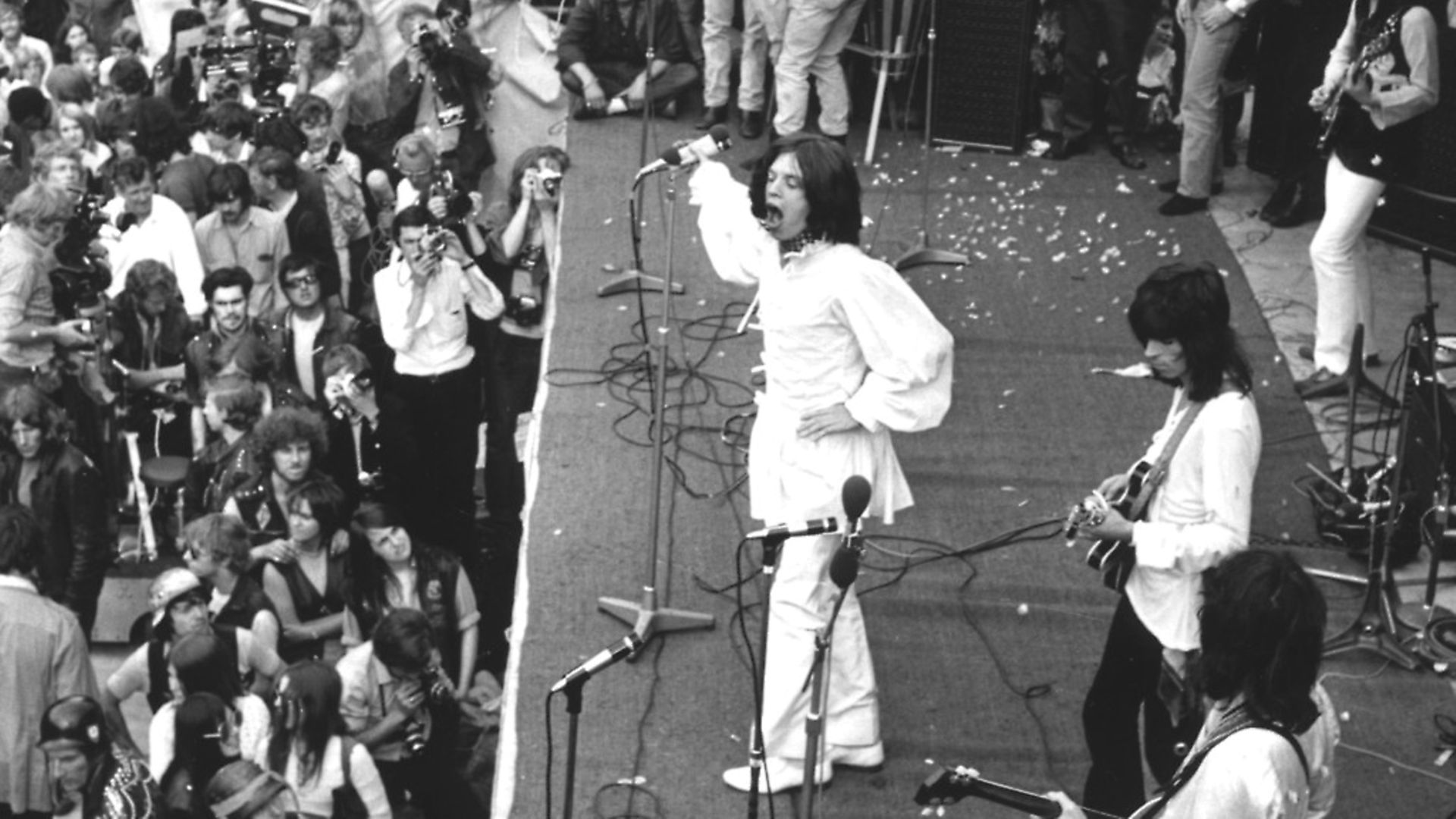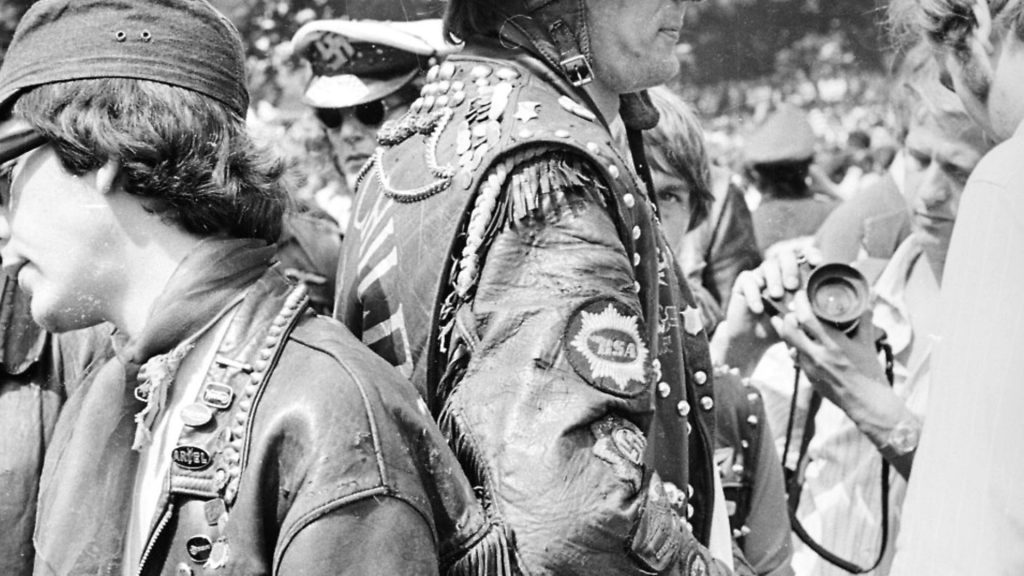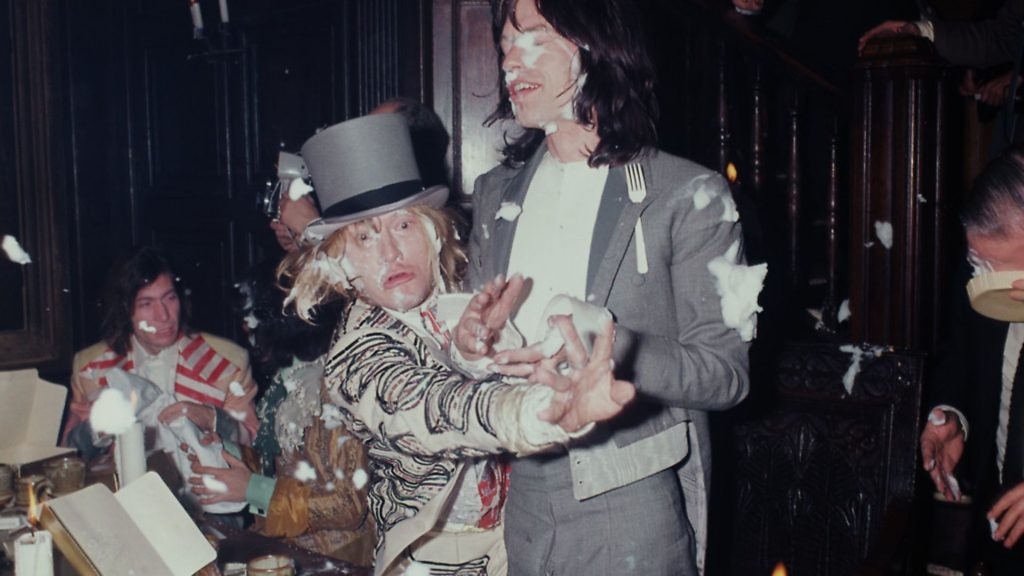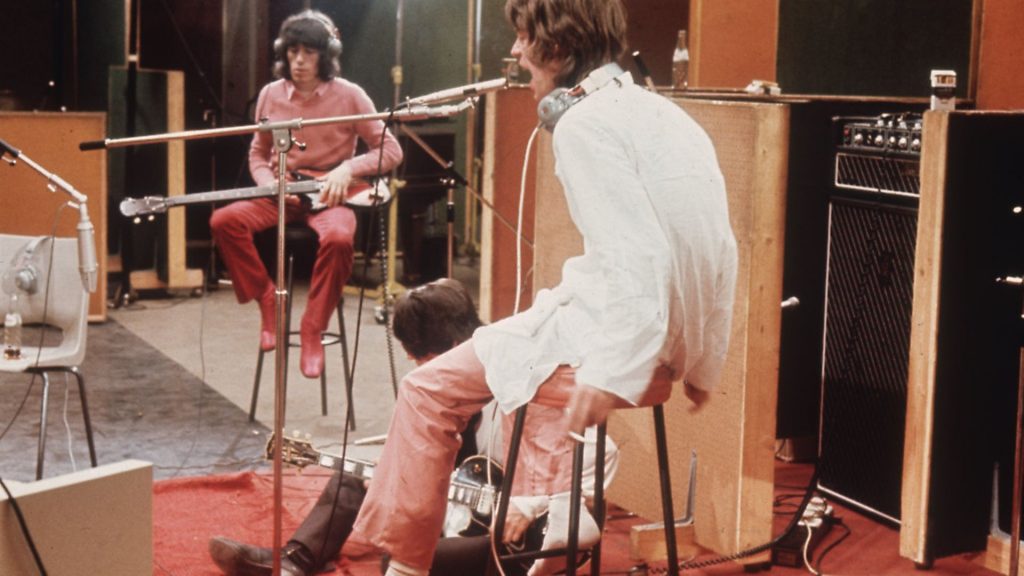
Fifty years ago The Rolling Stones’ Beggars Banquet represented not only a change in musical direction but also a counter cultural shift.

The launch party for the Rolling Stones’ Beggars Banquet, released 50 years ago this month, culminated in a food fight – a suitably messy end to a rather fractious process. The launch had, in fact, been delayed by months since even the cover – a toilet wall daubed with graffiti – had given the band’s record label cause for concern. The subsequent protracted dispute dragged throughout the summer and autumn until an eventual release with a sanitised cover in the style of an event invitation.
The album, though, marked a turning point, both for the Stones themselves and, by extension, rock more generally. Its predecessor, the patchy and poorly received Their Satanic Majesties Request had dabbled in psychedelia and experimental sounds. Drifting away from the blues-derived aesthetic that had made their name it was disparaged as a derivative shadow of the Beatles’ innovations, receiving unfavourable comparisons to Sergeant Pepper’s Lonely Hearts Club Band.
The Stones response was to move forward by looking backwards. Their origins as a blues band – their very name was taken from a Muddy Waters song – and the music that had provided source material for their earlier hits served as the foundations for Beggars Banquet. At the same time, they made a stride towards what would become their signature sound through Keith Richards’ discovery of the open tunings – where open, unfretted strings form a chord – that characterised much of the album, along with Jumpin’ Jack Flash, the preceding single recorded in the same sessions.
‘I had hit a kind of buffer. I just really thought I was not getting anywhere from straight concert tuning,’ Richards would recall in his autobiography. ‘I wasn’t learning anymore; I wasn’t getting some of the sounds I really wanted… Most times I went into different tunings because I had a song going and I was hearing it in my head but I couldn’t get it out of the conventional tuning no matter any way I looked at it. Also I wanted to try to go back and use what a lot of old blues guitarists were playing and transpose it to electric but keep the same basic simplicity and straightforwardness.’

The step change in his guitar style brought a visceral kick to the new recordings, pulling the band away from the more ornate arrangements that had characterised their last two albums and adding what would become Richards’ trademark swing to their musical arsenal to complement the swagger in their public image.
It also sealed the Jagger-Richards axis as the primary creative motor of the band while Brian Jones, its founder, was sidelined during the recording sessions. Burdened by an increasingly chaotic personal life, burgeoning drug and alcohol problems and troubles with the police, Jones was an irregular and uneven presence in the studio.
His isolation from the other Stones, personally and musically, would increase as they developed this new, harder sound. Within six months, he would be out of the band entirely, his drug and legal issues deemed a liability for their planned American tour.
By July 1969 he would be dead, drowned in his own swimming pool in an incident that would become shrouded in conspiracy theories despite the coroner noting the effect of alcohol and drugs on his organs and recording ‘death by misadventure’, a verdict reaffirmed by Sussex Police after a review in 2009.

This dark turn of events notwithstanding, the Stones – with young blues guitar tyro Mick Taylor replacing Jones – went from strength to strength. With new producer Jimmy Miller at the helm, Beggars Banquet kicked off a run of albums (including Let It Bleed, Sticky Fingers and Exile on Main Street) that cemented their status as the self-styled ‘Greatest Rock and Roll Band in the World’, an epithet that gained currency after its use to introduce them at their legendary free concert in Hyde Park in 1969, itself both a public tribute to the recently deceased Jones and their first live outing with Taylor.
Although a pre-launch outing for an acetate of Beggars Banquet at a nightclub launch had seen the Stones’ thunder stolen when Paul McCartney turned up with a pressing of Hey Jude and Revolution, the harder edge to their new music saw them emerging from the long shadow of the Beatles as the 1960s wound down.
When the 1970s began, the Beatles had dissolved, just as the Stones were entering their pomp, blitzkrieg tours and chart-topping albums putting them at the apex of the rock pantheon.
But the shadows that were manifest on Beggars Banquet would seep out beyond the music. The album, and latterly the band, crystallised the social unease and conflicts within the counter culture. Jean Luc-Godard’s film One Plus One featured extended footage of them recording Sympathy for the Devil, placing it alongside footage of the Black Panthers and voiceovers intoning the need for revolution.
The song itself, a trawl through violent and disruptive moments in history, had its lyric altered to reflect the recent assassination of Bobby Kennedy. It attracted controversy alongside the single from the album, Street Fighting Man, which reflected the student protests in Europe and race riots blighting the USA at the time.
Sympathy for the Devil was also the soundtrack to an outbreak of fighting at the band’s free show at Altamont Speedway in 1969, a concert that came to symbolise the death of the hippie dream, standing as the antithesis of Woodstock’s ‘peace and love’.
The murder of drug addled audience member Meredith Hunter by the Hell’s Angels that the Stones had misguidedly employed as security actually took place during a rendition of their earlier hit Under My Thumb. But it was the Stones’ newer music that was driving their appeal, and which came to represent the moment when the tensions that had been bubbling under during the Summer of Love and Swinging Sixties combusted into violence.
Regardless, Beggars Banquet laid down a template for rock that encapsulated a sense of rebellion within a commercially successful formula.
The band’s longtime recording engineer Glyn Johns called it their ‘coming of age’. Its musical toughness set down a template for the harder rock that would emerge in the 1970s, while trailing a clear line back to the genre’s roots in the blues.
The Stones themselves would embrace their status as troublesome avatars for popular music’s murkier tendencies, minting a sound and an image that would inspire subsequent generations of rockers. It threatened to overtake them at times – as Keith Richards descended into heroin addiction – while the internal contradictions of aging millionaire rebels, and rock’s apparent anti-establishment credentials, became explicit when Jagger received a knighthood in 2003. But, gearing up for another tour in 2019, weathering contradictions has become their forte in the 50 years since Beggars Banquet placed a darker filter on the pop limelight.









